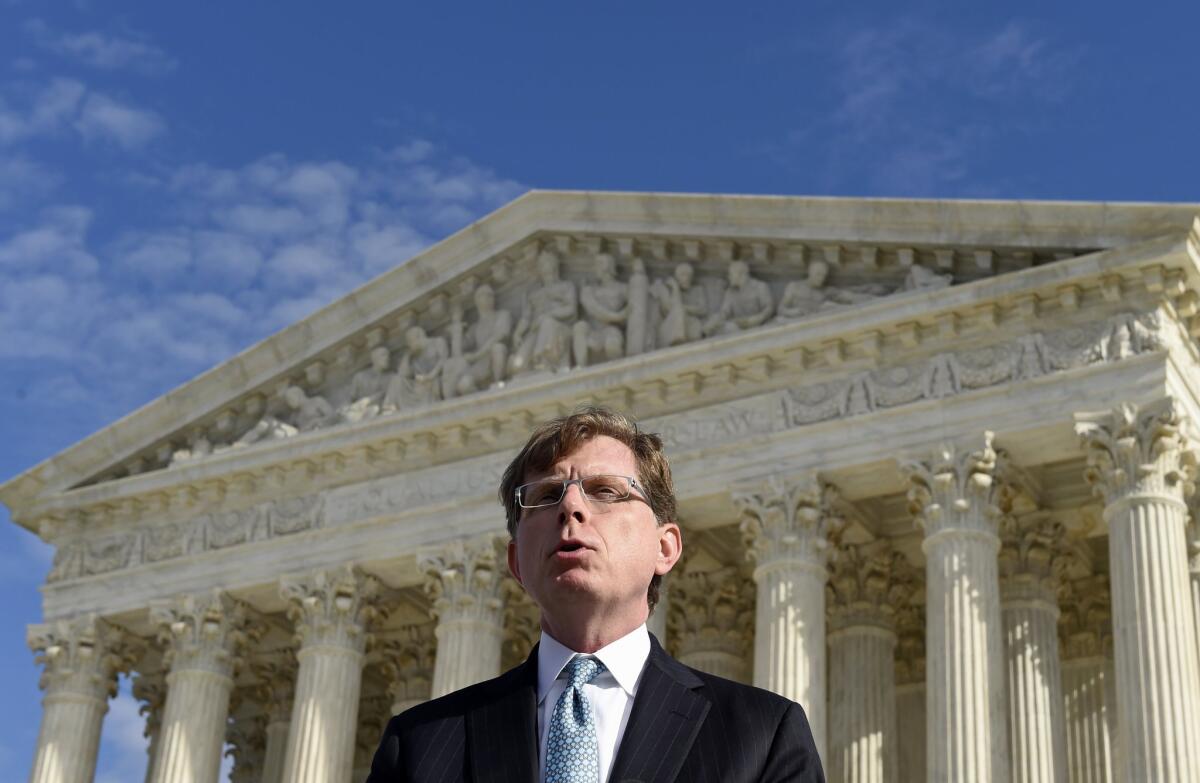Editorial: Violent speech on Facebook might find 1st Amendment protection, but it can still get you in trouble

- Share via
The United States protects free expression to a far greater extent than other liberal democracies. But even many free-speech advocates are uneasy about a case argued in the Supreme Court this week involving a Pennsylvania man who took to Facebook to engage in violent and vituperative speech about his estranged wife and law enforcement officials.
Anthony D. Elonis vs. the United States is the quintessential “hard case” in which an odious person is seeking the protection of the 1st Amendment. But the court would be making bad law by upholding Elonis’ conviction and the legal theory underlying it.
After his wife left him, taking their two children, Elonis wrote: “If I only knew then what I know now, I would have smothered [you] with a pillow, dumped your body in the back seat, dropped you off in Toad Creek and made it look like rape and murder.” When his wife obtained a Protection From Abuse order, he posted this on Facebook: “Fold up your PFA and put it in your pocket / Is it thick enough to stop a bullet?”
At his trial Elonis insisted that his posts — some of which resembled rap lyrics — were “therapeutic” and not threats to commit violence. Nevertheless, he was convicted under a statute making it a crime to transmit “any threat to kidnap any person or any threat to injure the person of another.” In his appeal, Elonis argues that to be punished for a threat, a speaker must intend to threaten. The Obama administration counters that it is sufficient that a “reasonable person” would regard the speech as threatening.
The latter approach might seem sensible, but it could lead to punishment for protected speech that, as the American Civil Liberties Union put it, is “crudely or zealously expressed.” On Monday, Justice Elena Kagan noted that “we typically say that the 1st Amendment requires a kind of a buffer zone to ensure that even stuff that is wrongful maybe is permitted because we don’t want to chill innocent behavior.”
Government must be very careful before it punishes speech, especially if the speech doesn’t clearly incite or threaten violence. That principle argues for overturning Elonis’ conviction. But we would make one additional point. In a friend-of-the-court brief, the Domestic Violence Legal Empowerment and Appeals Project expressed concern that a ruling for Elonis might make it harder for judges to grant restraining orders like the one Elonis’ wife obtained. The group asked that, if the court holds that intent is required for a criminal threat prosecution, it should “distinguish and carefully safeguard civil protection orders.”
We agree. A “rap lyric” about murder might be protected by the 1st Amendment, but it also can serve as evidence that the author must be kept away from a fearful spouse.
Follow the Opinion section on Twitter @latimesopinion
More to Read
A cure for the common opinion
Get thought-provoking perspectives with our weekly newsletter.
You may occasionally receive promotional content from the Los Angeles Times.









